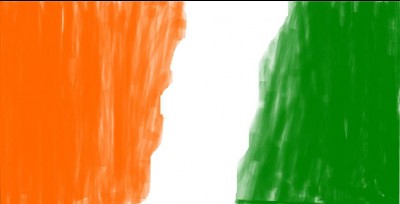by P R Viswanathan
There is the story of a Frenchman who wished to write a book on England. In three months of his sojourn in England, he was confident he knew all there was to know about the country but friends advised him to study a little more. He did so, delved deeper and in a year’s time, developed serious doubts about virtually every one of his earlier conclusions. Then after three years of detailed study, he abandoned the book altogether. That was about England – a country smaller than Maharashtra both in terms of land area and population.
The chaos in our country is overwhelming and few of us find it in ourselves to stand back and reflect. We come to such facile and clichéd conclusions as: we lack discipline, we lack integrity, we do not work hard enough, we are a divisive people, we do not think of the nation first as Europeans and Americans are supposed to do etc. Logically following all this, many of us also believe that we need not democracy but a dictator who will crack the whip and enforce discipline and unity.
John Kenneth Galbraith, great economist and US ambassador to India (1961-63) made two significant statements about the country:
- India is a continent and not a country
- India is a functioning anarchy
India is incomparably different from the nation states of Europe. It is time we understood this basic fact. The theme running through the nation-states of Europe is unity and uniformity. This political theme was only reinforced by the industrial revolution, the life-breath of which is standardization enabling mass production. In India, it is all about diversity and plurality but it is the diversity of the members of a family, of the five fingers of the hand, of the trunk and the branch and the leaves and flowers of a tree. When Europe talks of unity, it is political unity and so we compare two nations – Britain and India (instead of Britain and Maharashtra) and find India wanting in unity. Moreover, we fail to observe that even that small nation, Britain, is not entirely united. The Irish and the Scots have never felt one with England. Scotland even wants to become a separate country.
On the other hand, the point about India is that even when it had 525 kingdoms, it was essentially – emotionally and culturally – one country. The great saint, Aadi Shankara walked from the tip of the subcontinent in Kerala through several different kingdoms to Kashi and Kashmir and conducted discourses with the learned. Many a pious Hindu retired to Kashi in old age to die in the Holy city or most certainly held at home a pot of water from the holy river. The Vedas, the Mahabharata, the Ramayana are the shared heritage of every Hindu from Manipur in the East to Gujarat in the West and Srinagar in the North to Kanyakumari in the South. The fact that there were a few hundred kingdoms in the land mattered not one bit.
The last 250 years – since the battle of Plassey in 1757 – is the story of political action taken by the British based on a total misunderstanding of India. The British looked at India with the image of their own country. They superimposed a needless political unity on this wonderfully variegated land. They took some actions which reduced the vast majority to penury. In India, for centuries, taxes were collected from people based on the crop output; in good harvest years, the farmers paid more and in bad years, less. The bulk of the taxes collected, about 70%, was retained locally and used for local welfare – maintenance of schools, temples, tanks etc. The balance was remitted to the central authority – the Rajah in whose jurisdiction the people lived.
In one stroke, the British destroyed this fair and equitable system. The tax levied on the farmer became a fixed sum of money based on the size of the holdings regardless of the crops. Recall Champaran? Despite bad crops in successive years, the indigo farmers were required to pay this fixed sum, reducing them to starvation till Gandhiji came on the scene. Another change the British made was to reverse the proportions in which the tax revenues were shared. The bulk was thenceforth to be given to the Centre (the British Government) with only some 30% retained by the local authorities. As a result, the powers of the local authorities were greatly reduced and they became dependent on the Centre for finance.
Apart from the cruelty of this system, it was a big blow to the idea of a federation, of local government, of the rights of local people over their own resources. The reins of power were handed over to a distant centre with diverse priorities.
While at independence, the new rulers of India did recognize the bewildering variety of this land, almost without exception, they voted for a strong centre in order to contain our fissiparous tendencies. At independence, these concerns were legitimate and justified particularly since the sub-continent was divided on the basis of religion. But as it happened, over the years, the federal spirit has asserted itself in no uncertain terms. Today, the regional parties and leaders in India have become much more powerful than the so-called national ones. Many an internal war has been fought – over language, over territory, over the use of river waters and so forth. But none of these has brought the nation to the brink, notwithstanding the doomsayers.
Turning the searchlight on the maze of current events and the mist of history, some things become clear. We tend to judge ourselves far too harshly in the light of the last 66 years since independence. Let us not forget we are an ancient nation; we have gone through aeons. Sixty-six years are but a blip on the screen of our history. We are a nation in transition and various parts of the country are in different stages of transition. Pakistan is much worse than us and yet they too have progressed. For the first time in the history of that country, a democratically elected government completed its term and for the first time is being replaced by another democratically elected government.
Along the way as we progress on the path of industrial development with western democratic institutions, we must also look at our past for a better understanding of ourselves. We are not a people cut out for discipline and unity in the conventional sense. If the idea of India is to succeed, we must accept a much greater devolution of powers to the states and we must have smaller states; we must accept a centre with exclusive powers in a few areas – like defence and foreign affairs – and for the rest a centre that coordinates, reconciles and guides the states. Our bickerings will continue but democracy and economy will flourish, inclusive growth and people’s participation in the polity will have far better chances of success. Does this sound like a special status to all our states a la Kashmir, an extension of Article 370? One can hear many Indians crying out: sacrilege, do we want out other states to become like Kashmir?
Far from it! I see in this, visions of a grand alliance with Pakistan and Bangladesh, a grand coming together, a confederation of all the states of the Indian sub-continents.
P.R.Viswanathan is a born and bred Mumbaikar, a career banker and now a consultant in microfinance. After retiring and setting up as a consultant working from home, he has indulged his passion – writing. The subjects that interest him are parochial politics, microfinance, terrorism and deficit financing and above all India.






